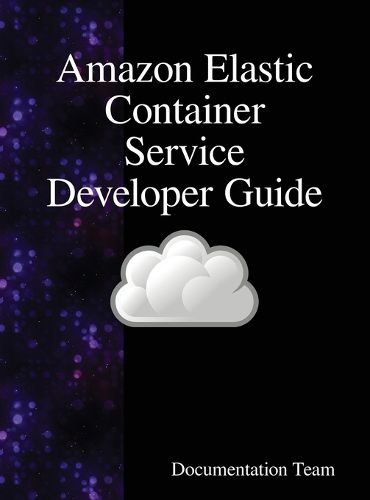Readings Newsletter
Become a Readings Member to make your shopping experience even easier.
Sign in or sign up for free!
You’re not far away from qualifying for FREE standard shipping within Australia
You’ve qualified for FREE standard shipping within Australia
The cart is loading…






This title is printed to order. This book may have been self-published. If so, we cannot guarantee the quality of the content. In the main most books will have gone through the editing process however some may not. We therefore suggest that you be aware of this before ordering this book. If in doubt check either the author or publisher’s details as we are unable to accept any returns unless they are faulty. Please contact us if you have any questions.
Amazon Elastic Container Service (Amazon ECS) is a highly scalable, fast, container management service that makes it easy to run, stop, and manage Docker containers on a cluster. You can host your cluster on a serverless infrastructure that is managed by Amazon ECS by launching your services or tasks using the Fargate launch type. For more control you can host your tasks on a cluster of Amazon Elastic Compute Cloud (Amazon EC2) instances that you manage by using the EC2 launch type. For more information about launch types, see Amazon ECS Launch Types.
Amazon ECS lets you launch and stop container-based applications with simple API calls, allows you to get the state of your cluster from a centralized service, and gives you access to many familiar Amazon EC2 features.
You can use Amazon ECS to schedule the placement of containers across your cluster based on your resource needs, isolation policies, and availability requirements. Amazon ECS eliminates the need for you to operate your own cluster management and configuration management systems or worry about scaling your management infrastructure.
Amazon ECS can be used to create a consistent deployment and build experience, manage, and scale batch and Extract-Transform-Load (ETL) workloads, and build sophisticated application architectures on a microservices model. For more information about Amazon ECS use cases and scenarios, see Container Use Cases.
$9.00 standard shipping within Australia
FREE standard shipping within Australia for orders over $100.00
Express & International shipping calculated at checkout
This title is printed to order. This book may have been self-published. If so, we cannot guarantee the quality of the content. In the main most books will have gone through the editing process however some may not. We therefore suggest that you be aware of this before ordering this book. If in doubt check either the author or publisher’s details as we are unable to accept any returns unless they are faulty. Please contact us if you have any questions.
Amazon Elastic Container Service (Amazon ECS) is a highly scalable, fast, container management service that makes it easy to run, stop, and manage Docker containers on a cluster. You can host your cluster on a serverless infrastructure that is managed by Amazon ECS by launching your services or tasks using the Fargate launch type. For more control you can host your tasks on a cluster of Amazon Elastic Compute Cloud (Amazon EC2) instances that you manage by using the EC2 launch type. For more information about launch types, see Amazon ECS Launch Types.
Amazon ECS lets you launch and stop container-based applications with simple API calls, allows you to get the state of your cluster from a centralized service, and gives you access to many familiar Amazon EC2 features.
You can use Amazon ECS to schedule the placement of containers across your cluster based on your resource needs, isolation policies, and availability requirements. Amazon ECS eliminates the need for you to operate your own cluster management and configuration management systems or worry about scaling your management infrastructure.
Amazon ECS can be used to create a consistent deployment and build experience, manage, and scale batch and Extract-Transform-Load (ETL) workloads, and build sophisticated application architectures on a microservices model. For more information about Amazon ECS use cases and scenarios, see Container Use Cases.